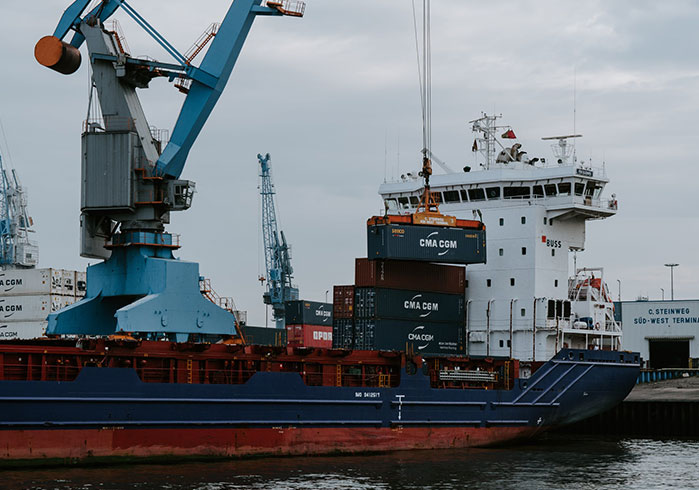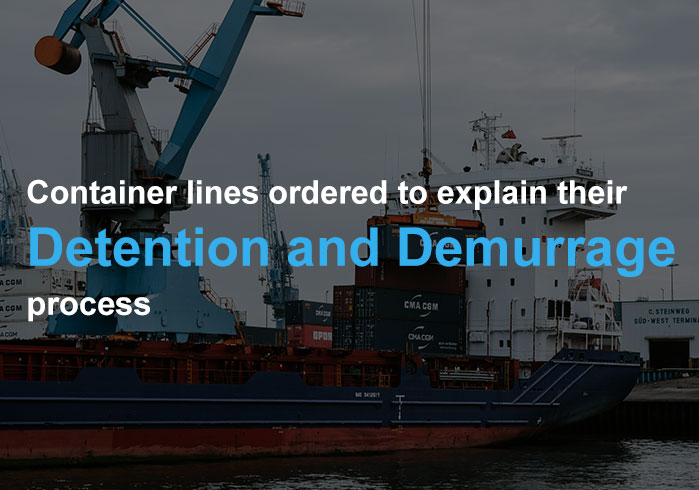
Federal Maritime Regulators intervened, demanding that marine terminal operators and container lines explain how they are assessing detention and demurrage. The affected locations include New Jersey, New York, Long Beach, and Los Angeles. This marks an important federal intervention into the market that could lead to even greater regulations in the future.
Detention and demurrage disputes
The decision to demand a formal explanation follows reports that dozens of vessels are regularly anchoring in Southern California. The reason for this is the significant increase in penalties arising out of port congestion. The complaints about the situation are coming from importers and draymen.
Rebecca Dye is the Federal Maritime Commissioner (FMC) and has led an investigation and fact-finding exercise concerning the management of detention and demurrage. The “Fact-Finding 29” includes questions about the presence of empty container returns. At the same time, the FMC will be seeking information about the availability of containers for exporters.
There have been reports of issues in California. For example, in February, the Harbor Trucking Association (HTA) presented a dispute of about $3 million worth of detention and demurrage fees for the previous year. The figure included 65% of disputed charges that were tied to no available appointments. This covered both the ability to pick up any container or to return an empty container.
The HTA complained that the fines imposed were higher than $200 per container in 80% of cases. In fact, for 20% of the reported cases, the charges exceeded $500 per container. Weston LaBar is the CEO of the HTA in California and argues that the decision is an indicator that FMC is going to be a lot more expansive in oversight.
According to LaBar, FMC is likely to go well beyond the usual interpretative rules. In doing so, the regulator will try to hold chain stakeholders accountable for their decisions and resultant actions. LaBar welcomes the involvement of FMC in exercising increasing control over an industry that has so far been operating according to its own rules for the most part.
John Butler is the CEO of the World Shipping Council (WSC) and issued a brief statement to the effect that the new notice is part of the new way in which the regulatory agencies will be doing their work. There will be a lot more oversight from the likes of FMC. The fact that the WSC represents many of the major global carriers is an indicator of some support for the increased regulation.
Some industry experts like LaBar have suggested that assessing detention when marine terminal operators are not accepting empty containers is unfair and unsustainable. Moreover, the ocean carrier is required to provide a drop-off location with all available appointments before the imposition of any penalties. On February 16th 2021, Dye indicated that she too agreed that the ocean carrier provides an available return location before it charges detention. What remains unclear is whether or not the location must be identical to where pick-up took place.
Nevertheless, ocean carriers maintain that detention and demurrage practices are an effective way of reducing delays. They are instrumental in ensuring the smooth flow of cargo. For example, retrieving and returning containers in time allows the next customer to gain access to the equipment. This is a critical advantage when dealing with a volume surge. Those cargo owners that fail to pick up their containers from the terminal make the supply chain more tedious than it ought to be. The same applies to those who hold onto empty containers for an inordinate amount of time.
The CEO of WSC is of the view that despite the importance of allowing easy flow of goods, there has to be an uptick in regulatory vigilance. One solution is to make appointments available to pick up containers before deciding to impose demurrage penalties. Additionally, this should be a universal standard that applies to all terminals and is backed by mandatory appointment systems.
U.S. exporters and vessel delays
The latest indicators from the Sea-Intelligence Maritime Analysis show that ocean reliability from Asia to both coasts of the USA was only 30% in December of 2020. This has put exporters in a difficult position of speculating about when exactly their cargo will be loaded. For example, the average delay for late vessels on the West Coast was nearly 8 days in December 2020. This is up more than 3 days when compared to the same month in 2019.
In effect, US exports are struggling to find empty containers or even to deliver loads into the terminal. That means that the earliest receiving date (ERD) is being constantly pushed back to deal with these delays. The pervasive breakdowns in the transportation supply chain are costly for exporters. There is a shortage of containers and chassis. Moreover, the congested terminals are not good for business.
That is why some ocean carriers have decided to reject shipments. This is done to allow for empty containers to be quickly sent back to Asia, where they can be refilled with merchandise that is higher-paying. Bruce Abbe of the Specialty Soya and Grains Alliance has spoken of anecdotal experiences of frustrated exporters.
The latest investigation by FMC did not specify any particular issues with ERDs. However, there is a generalized recognition of the problem that these ERDs create for exporters. Dye suggested that they will be working with all concerned stakeholders to find a workable solution to the problem.
Wrapping up
Following an outcry from exporters and transporters, the FMC has launched an investigation into how detention and demurrage fees are being charged. One of the emerging issues is the high costs that are associated with these penalties. Others complain about the fact that there is a shortage of vessels and space. Then there are issues with delays and bottlenecks in the transport supply chain. The detention and demurrage fees were designed to prevent customers from holding onto empty vessels and not creating space for the next customer. However, the imposition of these penalties is now posing some problems for an industry that is already dealing with high volumes. It is hoped that the regulators will become more active to prevent abuse within the system.



One Comment on ““Container Lines Ordered to Explain their Detention and Demurrage Process””
Thanks and good to raise the issue of demurrage and detention calculation by
The shipping lines and container terminals.
Another issue worth addressing is the THC and port dues /wharfage, charged separately although this should not be levied twice which should be explained by the port authorities of the relevant countries.
Appreciate comments.
Best Regards